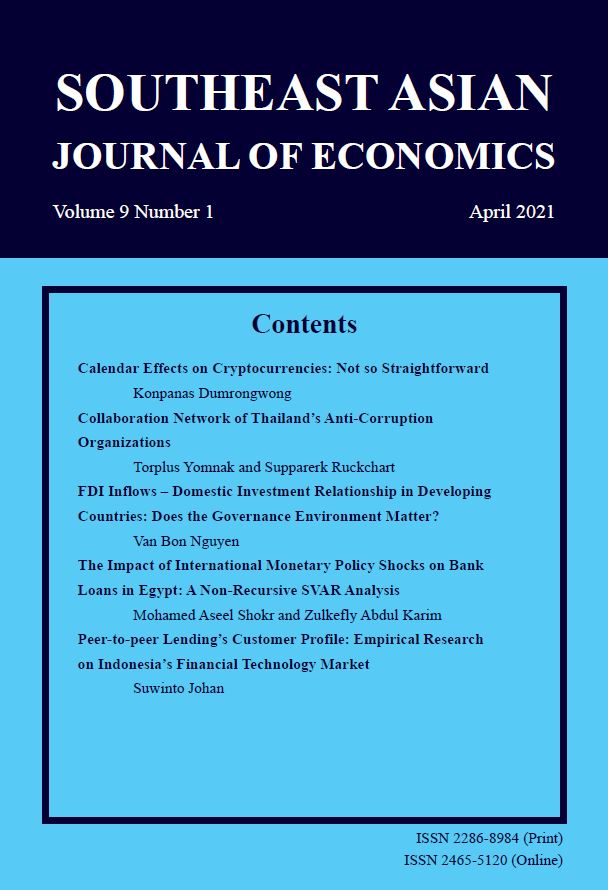The Impact of International Monetary Policy Shocks on Bank Loans in Egypt: A Non-Recursive SVAR Analysis
Keywords:
foreign monetary policy, bank loans, nternational bank lending channel, non-recursive SVARAbstract
This study uses a non-recursive SVAR model and quarterly macro-level data spanning from 1991 to 2015 to investigate the propagation of international monetary policy shocks upon bank loans and other macroeconomic indicators in Egypt. The main findings reveal that foreign monetary policy shocks significantly affect loans, inflation, interest rates, and output in Egypt. This finding indicates that the international bank lending channel operates in Egypt. In addition to foreign monetary policy, foreign output and inflation shocks also significantly impact Egypt’s domestic loans, output, interest rates, and inflation. European monetary policy has a greater impact on Egypt’s economy than United States’ monetary policy. These findings suggest that Egypt’s monetary authority needs to closely monitor the development of international monetary policy and other external variables (output and inflation) in order to formulate prudent monetary policy that can mitigate adverse effects of overseas shocks on the Egyptian economy.
Downloads
Published
How to Cite
Issue
Section
License
The submission of a manuscript implies that the paper is an original work and has not been published elsewhere. The author(s) authorize the journal to reproduce or distribute the paper in printed or other electronic forms.







